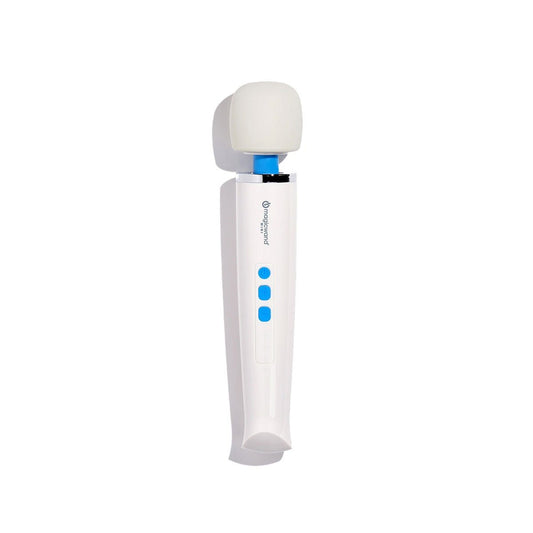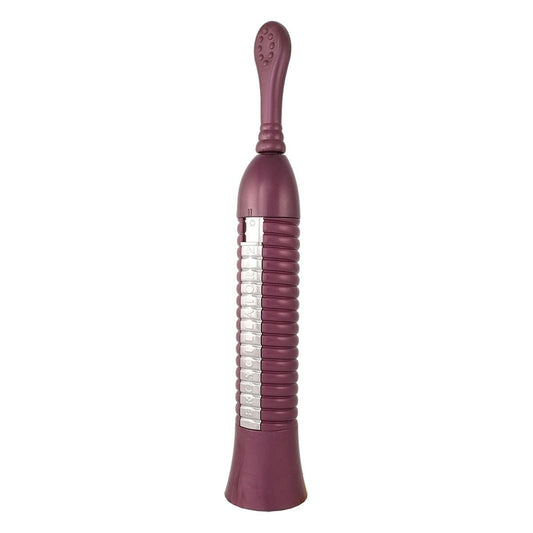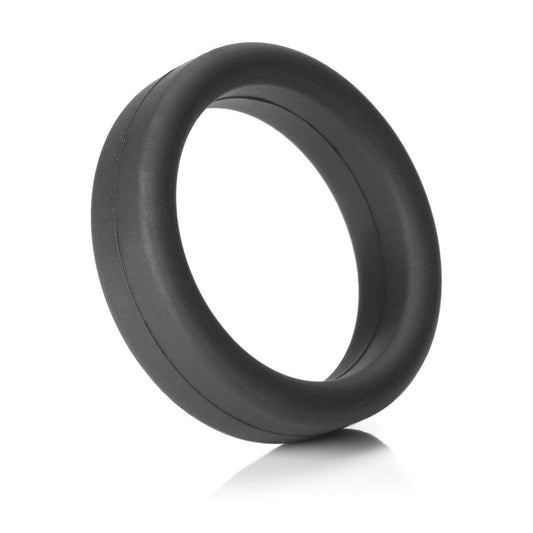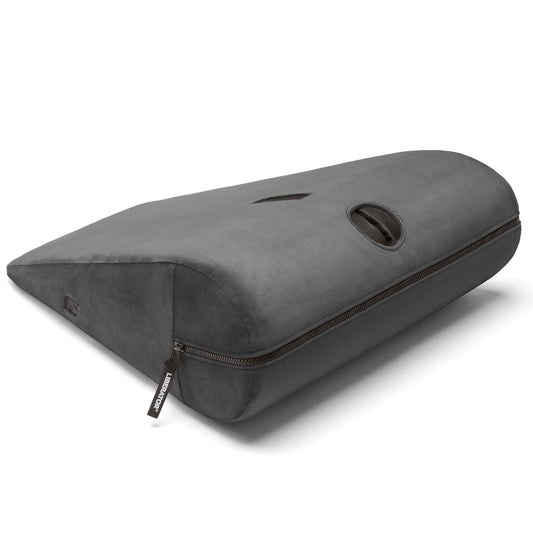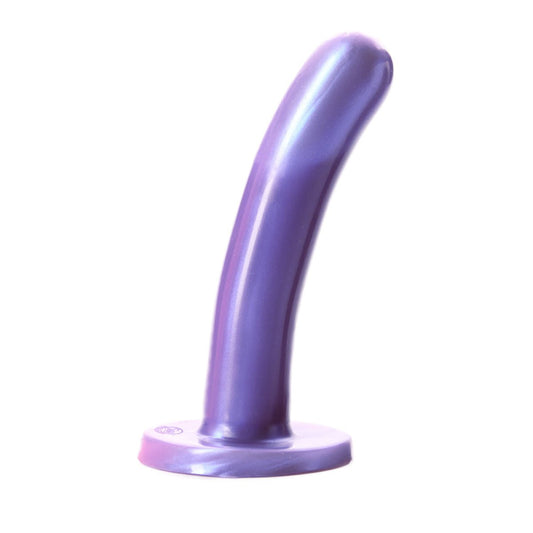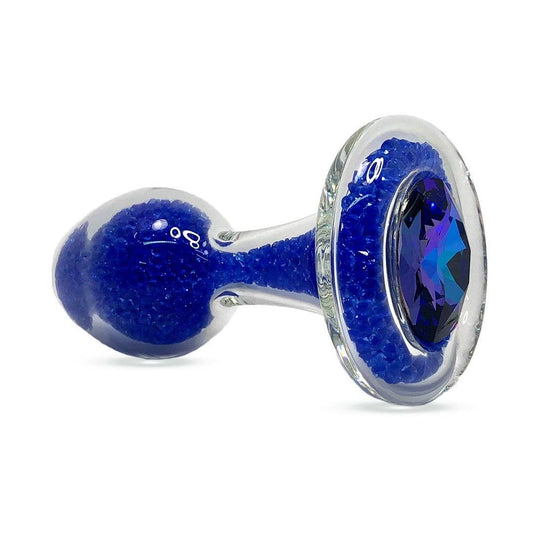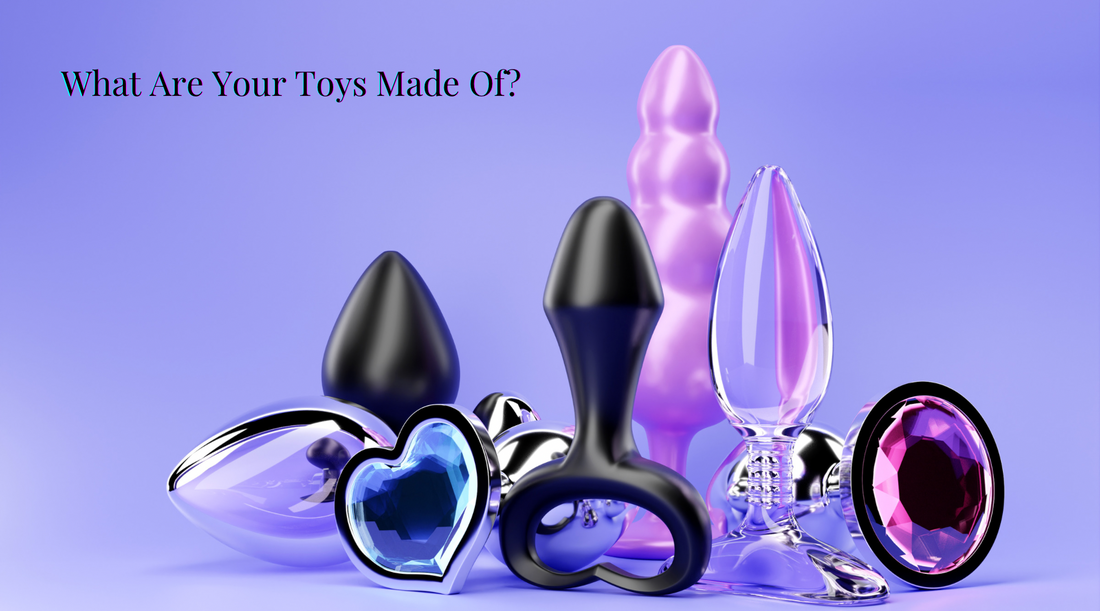
Material Matters: A Guide To Sex Toy Materials
Share
Factors to Consider When Deciding on Sex Toy Materials:
- Porosity –non-porous material is able to be cleaned and sanitized meaning it won’t harbor nasties like bacteria, fungus and viruses. In addition, non-porous materials are generally thought to be more stable and less likely to leach harmful chemicals. To be safe, always go with non-porous materials.
- Chemical Makeup/Toxicity – Because these toys are coming into contact with your delicate skin and mucous membranes, making sure the material used doesn’t contain any harmful chemicals is crucial. Exposure to harmful chemicals can cause irritation, allergic reactions, hormone disruption, and even increased cancer risk. Examples of harmful chemicals include phthalates, BPA’s and VOC’s.
- Durability – durable materials tend to be non-porous and generally safer. When a toy’s material degrades or tears it can trap harmful microbes, causing infection. Durable toys are also a better bang for your buck and more environmentally friendly.
- Temperature Response – if you are into temperature play it is important to determine the ability of a material to adapt to temperature changes safely. It is also good to know if a material will quickly warm in response to your body temperature if you don’t like the sensation of a chilly toy against your skin.
- Lube compatibility – Knowing what lubes the materials of your toys are compatible with is essential. Incompatible lubes can degrade materials making them harder to sanitize and reduces the toy’s life span.
Commonly Used Materials in Sex Toys
Silicone
Silicone is one of the most commonly used materials in the world of sex toys. But, not all silicone is created equal. Higher-end toys created by reputable companies are usually created with better-quality silicone. Silicone quickly warms to your body temperature and has a soft texture. It is body-safe, phthalate-free, hypoallergenic and non-porous.
Types of Silicone
There are two common grades of silicone used when creating higher-end sex toys. Both types of silicone are non-toxic, temperature-resistant and non-porous.
Food Grade Silicone - Food grade silicone has been tested to show that it doesn’t release harmful chemicals into food during use.
Medical Grade Silicone - Medical grade silicone undergoes even more stringent testing than food grade silicone to ensure that it is biocompatible, meaning it won’t create any adverse reactions when it comes into contact with human tissues.
Food grade silicone is typically less expensive than medical grade silicone to produce because of the less rigorous testing and certification process that it is required to undergo.
Curing Process
There are a few different types of curing processes used to create silicone. Ideally, a toy will be made out of platinum cured silicone which is cured using platinum. Platinum cured silicones are regarded as a cleaner form of silicone than peroxide cured silicone since it doesn’t create any peroxide by-products during the curing process. Platinum silicone is the type of silicone most commonly used for medical applications. When you hear about something being made of medical grade silicone, it is most likely made of platinum cured silicone.
Some sex toy manufacturers don’t note the kind of silicone that is used in the creation of their toy. A manufacturer may state that their toy is made of body-safe or body-compatible silicone, but that leaves room for ambiguity. That being said, if the manufacturer doesn’t specifically state what kind of silicone is being used and you want to know more, reach out to them and ask them for further clarification.
How to clean: Use mild soap and water, a quality toy cleaner or boil (if the toy doesn’t contain any mechanical elements).
Lube compatibility: Water-based lube is the safest option although, oil-based lube can also be used.
Borosilicate Glass
Glass is a fantastic material for non-vibrating sex toys! Ensure any glass toys are made of borosilicate glass. Borosilicate glass contains boron trioxide which makes it more durable and resilient when exposed to temperature changes. It is body-safe, non-toxic, environmentally friendly, nonporous and very easy to sanitize after use. Just like any glass items, these toys should be monitored for chips or cracks and handled with care. Borosilicate glass retains temperature (both hot and cold) very well so it is a great option for temperature play.
How to clean: Use mild soap and water, a quality toy cleaner or boil.
Lube compatibility: All types.
Stainless Steel
Stainless Steel is super durable, has a modern, sleek appearance and a nice weighty feel. It is a fabulous choice for temperature play since it has great thermal conductivity! Stainless steel is body-safe, non-porous and non-toxic. You are unlikely to experience any corrosion with your stainless-steel toys since it is resistant to corrosion caused bodily fluids. When selecting a stainless-steel sex toy, confirm that it is medical grade or 316 stainless steel to ensure longevity.
How to clean: Use a mild soap and water, a quality cleaner or boil if the toy doesn’t contain any mechanical elements).
Lube compatibility: All types.
Porcelain
The porcelain toys are smooth to the touch and great at retaining temperature. They are surprisingly strong with a high mechanical strength, non-porous, hypoallergenic, body-safe and gorgeous. Porcelain can be used for temperature play but you’ll want to make sure to not put your porcelain toy in the freezer or boiling water. Instead, warm your toy by putting it in warm water or cool it down by putting it in the fridge. Handle with care to avoid chips and cracks.
How to clean: Use a mild soap and water or a quality toy cleaner.
Lube compatibility: All types.
Wood

Wooden sex toys are visually striking and can be a unique addition to your collection. There is some debate about whether or not wood can be utilized safely as a material for sex toys due to its naturally porous and absorbent nature. The key is to make sure your toy has been sealed with a waterproof, hypoallergenic, body-safe, phthalate-free, impermeable coating rendering the toy smooth from splinters and non-porous. Wood holds warmth nicely, warming quickly during use. As long as you are careful to use a non-abrasive cleanser after use, these toys should last a very long time.
How to clean: Use a mild, non-abrasive soap and warm water.
Lube compatibility: All types.
Stone/ Crystal
Stone and Crystal toys are stunning but you need to be discriminating when selecting your toy. Quartz, jade, amethyst and obsidian are good choices because they are all naturally hard stones that are considered non-porous. Malachite, azurite and hematite are examples of stones that aren’t considered safe for internal use. Always research the stone or crystal you plan on purchasing to make sure it is body-safe. Be wary of buying low-cost or low-quality stones or crystal toys. It is essential that you feel confident that you are receiving the stone or crystal that is being advertised. Lower quality crystals may undergo processes to enhance their appearance such as quench crackling that creates tiny cracks for dye to seep into. This is problematic because it affects the structural integrity of the toy making it less durable and increases its porosity. Crystals and stones can be warmed or cooled to enhance your experience.
How to clean: Use a mild soap and warm water or a quality toy cleaner.
Lube compatibility: All types.
ABS Plastic
ABS Plastic is a thermoplastic polymer that is commonly used to make sex toys. It is body-safe, non-toxic and non-porous. ABS plastic is often used in combination with other materials (ex. silicone). It is hard, durable and easy to clean. ABS plastic needs to be kept out of direct sunlight to avoid color fading. If you are interested in temperature play, you will want to look elsewhere since ABS plastic doesn’t have great thermal conductivity.
How to clean: Use a non-abrasive soap and warm water and/or a quality toy cleaner.
Lube compatibility: All types, unless combined with materials like silicone in which case, no silicone-based lubes should be used.
The No-No List
I would strongly recommend passing on toys containing these materials. Yes, they are inexpensive, but they also pose a hazard to your health. There are better inexpensive alternatives out there that aren’t so risky.
- TPE - stands for thermoplastic elastomer. It is a soft, flexible material that can be used as a cheaper alternative to silicone. This material is porous and cannot be sterilized after use.
- Jelly Rubber - porous and contains phthalates.
- Cyberskin and other skin-like materials - prone to tearing, quick to degrade and porous.
- PVC/ Vinyl (Polyvinyl Chloride) - porous and contains phthalates.
At SugarX we believe in doing what is right for your body and making informed decisions. We strive to carry the highest quality products and include relevant product information in our products descriptions. If you ever need any further information, always feel free to reach out.
Check out our Sex Toy Collection to discover body-safe toys that will take your play to the next level.






